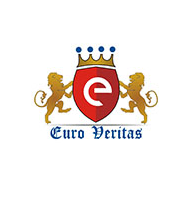 |  |
ISO 22000:2005 specifies requirements for a food safety management system where an organization in the food chain needs to demonstrate its ability to control food safety hazards in order to ensure that food is safe at the time of human consumption. It is applicable to all organizations, regardless of size, which are involved in any aspect of the food chain and want to implement systems that consistently provide safe products. The means of meeting any requirements of ISO 22000:2005 can be accomplished through the use of internal and/or external resources.
ISO 22000:2005 specifies requirements to enable an organization :
• to plan, implement, operate, maintain and update a food safety management system aimed at providing products that, according to their intended use, are safe for the consumer,
• to demonstrate compliance with applicable statutory and regulatory food safety requirements,
• to evaluate and assess customer requirements and demonstrate conformity with those mutually agreed customer requirements that relate to food safety, in order to enhance customer satisfaction,
• to effectively communicate food safety issues to their suppliers, customers and relevant interested parties in the food chain,
• to ensure that the organization conforms to its stated food safety policy,
• to demonstrate such conformity to relevant interested parties, and
• to seek certification or registration of its food safety management system by an external organization, or make a self-assessment or self-declaration of conformity to ISO 22000:2005.
The ISO 22000 international standard specifies the requirements for a food safety management system that involves the following elements:
• Critical reviews of the above elements have been conducted by many scientists. Communication along the food chain is essential to ensure that all relevant food safety hazards are identified and adequately controlled at each step within the food chain. This implies communication between organizations both upstream and downstream in the food chain. Communication with customers and supplies about identified hazards and control measures will assist in clarifying customer and supplier requirements.
• Recognition of the organization's role and position within the food chain is essential to ensure effective interactive communication throughout the chain in order to deliver safe food products to the final consumer. The most effective food safety systems are established, operated and updated within the framework of a structured management system and incorporated into the overall management activities of the organization. This provides maximum benefit for the organization and interested parties. ISO 22000 has been aligned with ISO 9001 in order to enhance the compatibility of the two standards.
ISO 22000 can be applied independently of other management system standards or integrated with existing management system requirements.
ISO 22000 integrates the principles of the Hazard Analysis and Critical Control Point (HACCP) system and application steps developed by the Codex Alimentarius Commission. By means of auditable requirements, it combines the HACCP plan with prerequisite programmes. Hazard analysis is the key to an effective food safety management system, since conducting a hazard analysis assists in organizing the knowledge required to establish an effective combination of control measures.
ISO 22000 requires that all hazards that may be reasonably expected to occur in the food chain, including hazards that may be associated with the type of process and facilities used, are identified and assessed. Thus it provides the means to determine and document why certain identified hazards need to be controlled by a particular organization and why others need not.
At Euro Veritas Ltd, we can help you take your policies a step further. We offer clients: An audit process conducted by experts in the given field.
Certification awarded by an International Certification Committee comprising senior experts, independent of the audit process itself and with a high level of appreciation of international best practice, also competent on the basis of Qualification. Recommendation for continual improvement of both policy and its implementation.